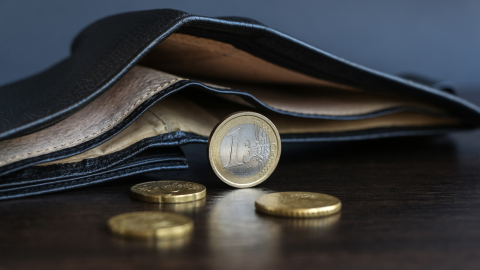Derk-Jan Eppink has expressed his concerns on behalf of BBB about the financial choices of the outgoing cabinet. He is concerned about how much tax people pay if they work more and also about the increased burden on businesses. BBB is asking the government to review these plans and work together to find other ways to balance the money without raising taxes on people and businesses even more.
Support minimums
Derk-Jan started by discussing the increase in housing allowance as an income support measure. Although this is intended to help those at minimum, BBB points out the possible negative consequences, such as increased dependence on the government. “The downside of this development is that we are creating a new group that is made dependent on the government. Of course, they too will first have to deal with the marginal pressure (which indicates how much extra tax someone must pay on each extra euro earned) which is higher than 50%. The child budget is undergoing a similar development and these negative side effects will also occur there. Due to the benefits system, working no longer pays and this is extra problematic for newcomers who almost immediately fall into a poverty trap.”
Tax system must be simpler
The employment tax credit is increased by €115 at the second income level. BBB emphasizes that although the government sees this as an incentive to work more, the tax system is still opaque. Many citizens think that they pay 37% tax in the first bracket, while everyone actually has a personal rate due to various tax credits. BBB believes that these discounts make the tax system confusing and complicated. We are concerned about how people can be encouraged to work more if they are not clear about what exactly they have to pay. BBB wants to increase the transparency of tax rates, especially as the size of tax credits is expanded.
The Netherlands is built on entrepreneurship
Derk-Jan emphasized the importance of companies and entrepreneurs for the Dutch economy. 2.3 million active companies in the Netherlands are responsible for 60% of economic added value and 70% of employment comes from SMEs. BBB is critical of the proposed increase in tax burdens for companies, despite the positive position of the State Secretary of Finance. BBB emphasizes that many of the proposed measures will lead to an increase in costs for businesses. The government has the responsibility to keep its budget manageable. BBB recognizes this. But rising expenditure in combination with proposed increases in tax burdens is at odds with this.
Increase in excise duties has consequences for border regions
The government is increasing the excise duty on wine, beer and spirits by 16%. The latter category, spirits, is having a hard time because the excise duties on spirits are already higher than those on beer and wine. This increase in taxes is also causing a lot of controversy.
In addition to the additional costs for consumers, SMEs in this sector are hit hard by declining demand and increasing border effects. We look at the regions. SMEs that have long contributed to their communities are being lost. Yet another blow to the middle class, especially in the countryside and the border region.
Slijtersunie card
Derk-Jan also pointed to the card from the SlijtersUnie. The card says: Grüße aus Deutschland. And there are all kinds of Dutch cars in front of the shop. So if it is better to do shopping in Germany, for example from Enschede or Deventer, or perhaps Amersfoort on a bad day, then yes, then this is the wrong effect. Mr President, it is much cheaper. Dutch people pay attention to the price. According to BBB, the excise tax increase will cost the government money in the long run.
View Derk-Jan Eppink’s input here
